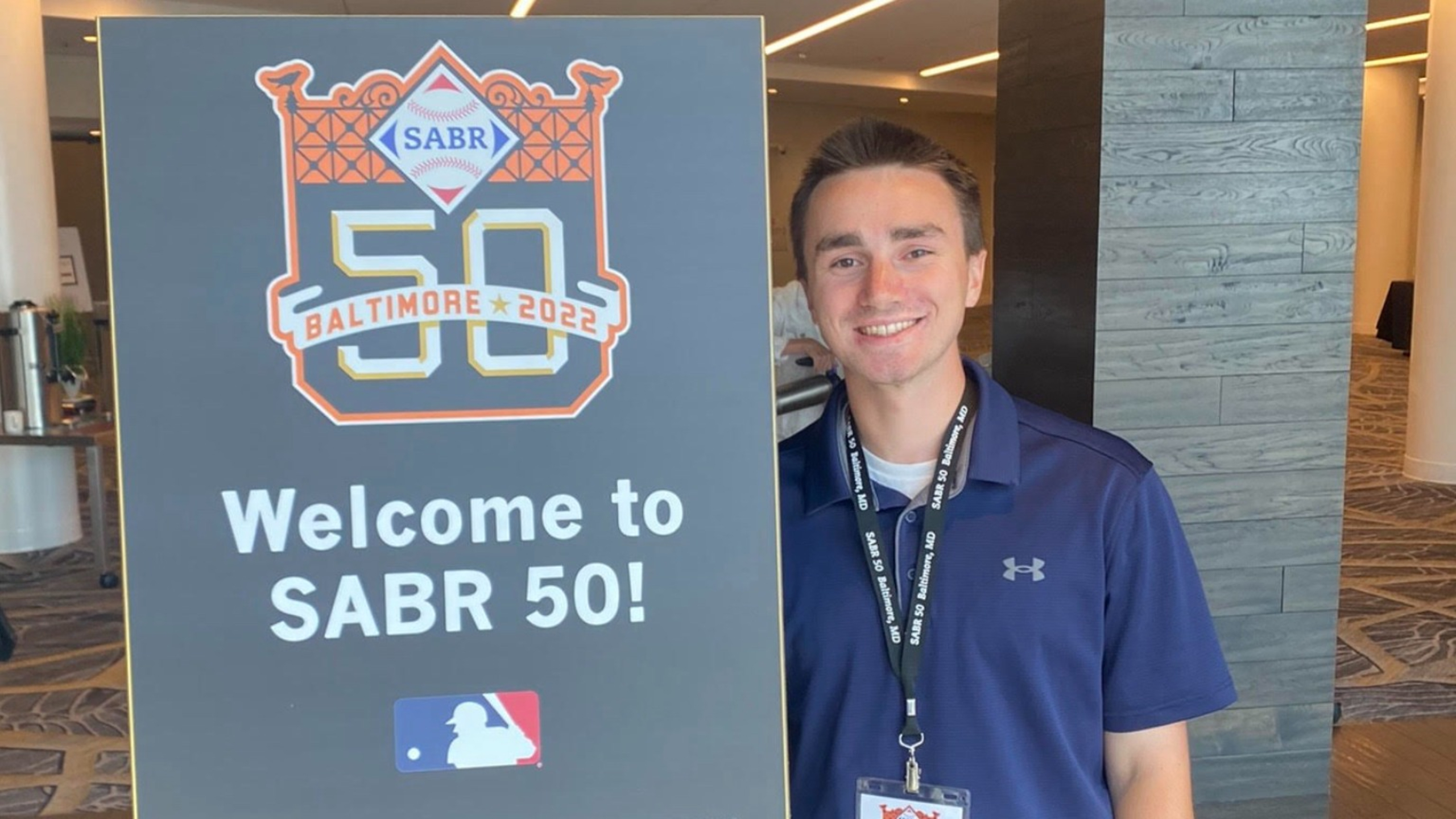On Deck to Teach
October 26, 2022

Senior history and education double major—and baseball aficionado—Christopher Roberts is eager to bring history to life for his students.
By Jessica Weiss ’05
To Christopher Roberts ’23, getting up in front of a class full of middle school students to teach history is challenging, exhilarating—and exactly what he’s meant to do.
After substitute teaching over the summer, the senior history and education double major is immersed in student teaching this academic year and hopes to land a full-time job teaching social studies by next fall.
“If there’s one thing I’ve learned at Maryland it’s that there’s no right answer in history; there’s always more to consider,” he said. “And that’s what I hope to instill in my students.”
Roberts, who grew up in Bel Air, Maryland, came to UMD with an interest in journalism but quickly decided to switch to education with a focus on social studies. He said teaching isn’t so different from journalism: “It’s storytelling and getting kids engaged with those stories.” By the end of freshman year, he declared his double major.
Roberts has found his place in history by taking a range of courses. While focusing broadly on U.S. history, he’s also been able to investigate topics of personal interest, including the history of his favorite sport and “America’s pastime”: baseball.
Last year, Roberts was nervous as he approached his history lecturer Katarina Keane during office hours with the idea to pursue a topic related to baseball history for his history capstone project. “I wasn’t sure what she would think about something related to sports but she was on board right away,” he said. “She always believed in me and encouraged me to keep going and dig deeper. Dr. Keane really showed me the type of teacher I want to be.”
Roberts’ 33-page capstone, “Cultural Chaos at Comiskey: Major League Baseball and Disco’s Intersection in 1979,” focuses on Disco Demolition Night, an infamous Major League Baseball promotion in Chicago that ended in a riot.
In July 1979, the White Sox organized a promotion that offered discounted tickets to attendees who turned in a disco record and agreed to have it destroyed in a mid-field explosion. To team management, it was a wacky idea intended to fill seats during a weak season. But given disco music’s popularity at the time among Black and gay communities, the stunt was heavily criticized. After the collected records were blown up, thousands of fans stormed the field.
Through the use of archival documents, books, correspondence, photographs, videos and more, Roberts’ paper seeks to bring nuance to the way Disco Demolition Night is remembered. While some insist it was simply a “goofy, silly promotion,” others point to racism and homophobia.
“Both are right, and through my research, I try to mesh those perspectives together and look at what the night can tell us about American culture in 1979,” Roberts said.
“Writing this paper was by far the most fun and rewarding experience I had in college,” he added. “I was honestly sad to turn in my paper.”
While researching and writing his capstone, Roberts applied for and received a scholarship to attend the Society for American Baseball Research’s (SABR’s) annual convention in Baltimore this past summer, where he connected with other scholars of baseball history and affirmed his passion for baseball research. He is now a SABR member and hopes to get involved in the group’s Baltimore chapter. He said he plans to conduct baseball research as a long-term hobby, and even hopes to present his research at a future conference.
“I think at heart I’m just a curious person,” he said. “I’ve had so many great teachers at Maryland who’ve shown me you can learn so much through a simple question of ‘why?’ and if you really want to know an answer you can go find it. Now I’m ready to convey that to my students.”
Photo courtesy of Christopher Roberts.

